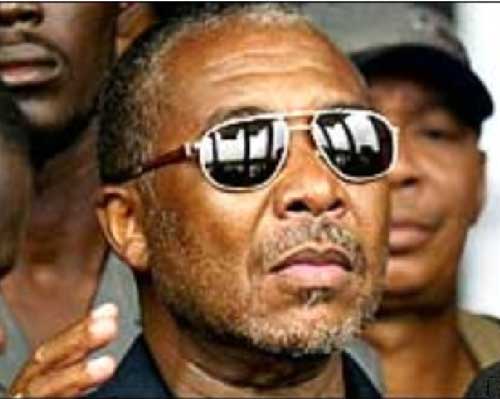Criminalized States and Terrorist-Criminal Pipelines
By Douglas Farah
Senior Fellow, Financial Investigations and Transparency
International Assessment and Strategy Center
Adjunct Fellow, Americas Program, CSIS
http://www.ndu.edu/press/emerging-alliances.html
The Case of Charles Taylor in Liberia
07/08/2011 – Liberia under Charles Taylor offers several important lessons in this context.
At the height of his power from 1998-2002, Taylor allowed transnational organized crime groups from Russia, South Africa, Israel and Ukraine to operate simultaneously in a territory the size do the state of Maryland. At the same time, the terrorist groups Hezbollah and al Qaeda were economically operational in Liberia, raising money for their parent organizations through associations with criminal groups. Most of the criminal activity revolved around the trading in diamonds extracted in neighboring Sierra Leone, and Liberian timber. In 2000, al Qaeda operatives entered the diamond trade, using Hezbollah-linked diamond smuggling networks to move the stones and handle the proceeds. The relationship lasted until just before Sept. 11, 2001.[1]

This was possible largely because the Taylor government pioneered to a new level of sophistication the model for the criminalized state where the government was an active partner in the criminal enterprise. The president, directly engaged in negotiations with the criminal groups, authorized specific lines of effort for those actors, provided protection and impunity through the state, directly profited from the enterprises and co-mingled those funds with other state revenue streams, erasing the distinction between the state, the criminal enterprise and the person of the president.
A key to the model was the government control of key points of interest to criminal organizations and others operating outside the international legal system for which they were willing to share their profits. These included, among others: the ports of entry and exit, insuring those whom he Taylor wanted to protect could enter and leave unimpeded; the passport registry, giving access to the issuing of passports, including diplomatic passports, and non-existent government titles with accompanying immunity, to those authorized to do business; control of the law enforcement and military inside the country to insure that the volatile internal situation did not affect the protected business operations; and access to the resources that could be profitably exploited without fear of violence or unauthorized extortion.
When he became president, Taylor, building on the extensive relationships he forged during his years in the bush, developed ties to organized criminal groups and terrorist organizations that allowed him to procure hundreds of tons of weapons from a broad range of groups and individuals. He also enriched himself. According to a 2005 study of Taylor’s finances, he generated about $105 million a year in extra budgetary revenue to which he had direct access, some of which was moved through accounts opened in his name in New York banks and European financial institutions.[2]
Taylor was, in effect, not president of a country but controlling what Robert Cooper has called the “pre-modern state,” meaning territory where:
… chaos is the norm and war is a way of life. Insofar as there is a government, it operates in a way similar to an organized crime syndicate. The pre-modern state may be too weak even to secure its home territory, let alone pose a threat internationally, but it can provide a base for non-state actors who may represent a danger in the post-modern world … notably drug, crime and terrorist syndicates.[3]
Taylor’s rule proved valuable to arms traffickers. The same Hezbollah operatives that aided al Qaeda’s diamond buying venture in Liberia were able to acquire significant amounts of sophisticated weapons for Taylor and his allies through a series of transactions with Russian arms dealers based in Guatemala and operating in Nicaragua and Panama. The primary facilitator of the deals was a retired Israeli officer living in Panama, who had a personal relationship with the Hezbollah operative seeking the weapons. Both had worked for Mobutu Sese Seku, the long-ruling head of Zaire (now the Democratic Republic of Congo). The Israeli provided the dictator with security while the Lebanese operative moved his diamonds to the black market.[4]
The ability of Hezbollah financial handlers to deal with a retired Israeli officer who has access to weapons while their respective organizations were waging war against each other in their respective homelands demonstrates just how flexible the pipelines can become.
In addition to this arms flow, Taylor used his illicit proceeds to buy a significant amount of weapons from the former Soviet republics, which were procured and transported by Viktor Bout, a Russian arms merchant dubbed the “Merchant of Death” by European officials.
[1] For details and supporting documentation on these weapons deal and al Qaeda’s dealing in the blood diamond trade see: Douglas Farah, Blood From Stones: The Secret Financial Network of Terror, Broadway Books, New York, 2004. See also: International Consortium of Investigative Journalists, “Making a Killing: The Business of War,” The Center for Public Integrity, 2003. A comprehensive analysis of the possible ongoing al Qaeda activities in West Africa is provided by the Special Court for Sierra Leone, “Charles Taylor’s Influence and Destabilization in West Africa: Guinea-January 2005,” marked “extremely sensitive,” in possession of the author.
[2] For a more complete look at this network, see “Following Taylor’s Money: A Path of War and Destruction,” Coalition for International Justice, May 2005. The author was the lead investigator for that report.
[3] Robert Cooper, “Reordering the World: Post-Modern States,” The Foreign Policy Centre, April 2002, p. 18.
[4] Farah, Blood From Stones: The Secret Financial Network of Terror, op cit.


